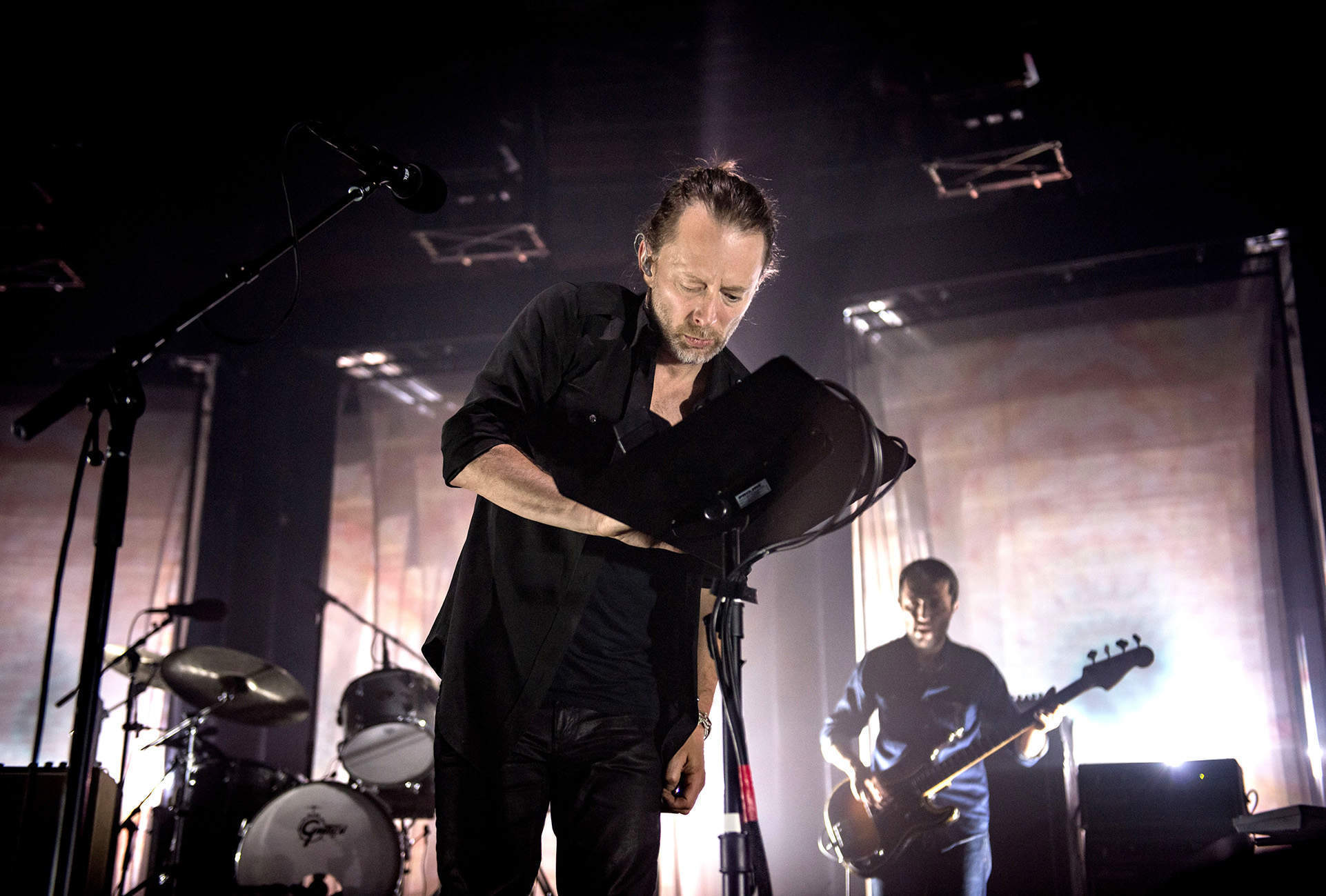
Like nature’s annual flying ant day, Radiohead’s infrequent live appearances in London draw little-seen wildlife out into the open. In the crowd, amid the refurbished steam-punk splendour of the Roundhouse tonight, are the like-minded souls Kate Bush, Nick Cave and P J Harvey – artists whose work, while not precisely akin to Radiohead’s ebbing and flowing machine dreams, also mixes the artistically uncompromising with the commercially successful. Also negotiating an indie T-shirted fortysomething queue that snakes south towards Camden Town are the former Doctor Who Matt Smith, the TV comedy subversives Adam Buxton, Chris Morris and Julian Barratt, and the actor Toby Jones, a former schoolmate of the band.
This second of three Roundhouse shows is one of those rare evenings that feels like an event – an unofficial celebration of the notion that, even in a music world increasingly denatured by rote professionalism and the tyranny of the quantifiable digital metric, outsiders and weirdos can still win.



